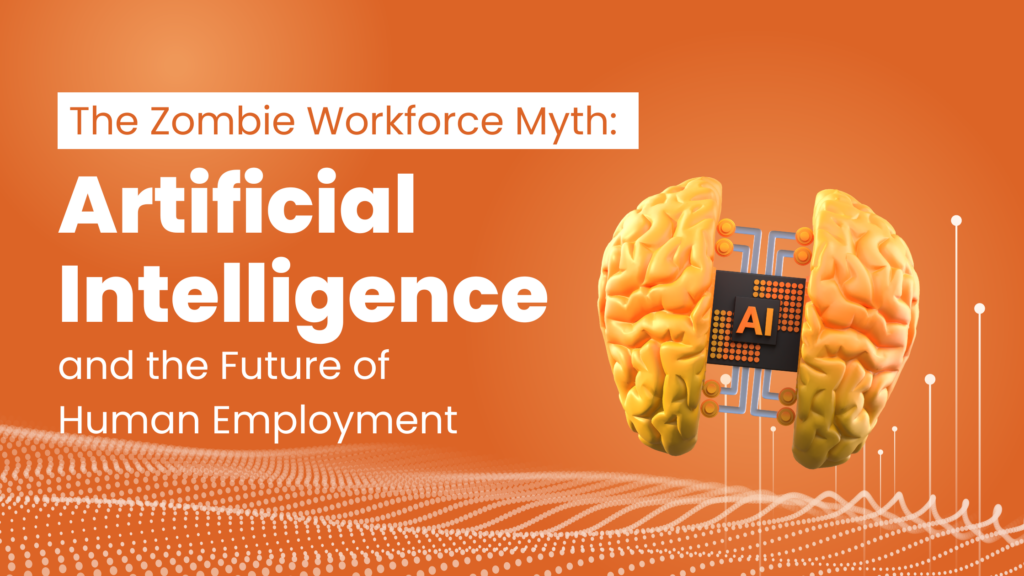As we navigate this era of unprecedented technological transformation, it’s crucial to separate fiction from reality. The phrase “artificial intelligence” often stirs visions of machines poised to seize human jobs, ushering in a bleak era of widespread unemployment. But are these fears grounded in reality, or is this apprehension more myth than fact? It’s a common misconception that artificial intelligence (AI) will lead to a workforce apocalypse, a notion fueled by sensational headlines and dystopian portrayals in popular culture.
The idea that AI will turn workers into zombies, devoid of employment opportunities, is a pervasive rumor. A more nuanced perspective reveals that the future isn’t as grim as some might believe. Instead of viewing AI as a foe, we should consider it as an ally with the potential to serve as a powerful collaborative partner in the workforce. AI is designed to complement human capabilities, not replace them. To fully grasp the dynamics at play, let’s explore how AI can collaborate with today’s workforce, the ways it can empower human professionals, and the surprising new roles it can create.
Debunking the Myth: AI as a Collaborative Partner
Enhancing Productivity: AI can automate repetitive tasks, freeing up human workers to focus on more creative, strategic, and meaningful aspects of their jobs. For example, in manufacturing, robots can handle routine assembly line tasks, while human workers oversee quality control and process optimization.
Augmenting Decision-Making: AI-driven analytics provide valuable insights for informed decision-making. Professionals can harness the power of AI to make data-driven choices that improve efficiency and outcomes across industries, from healthcare to finance.
Creating New Job Roles: The rise of AI has led to the emergence of entirely new job roles related to AI development, maintenance, and oversight. These positions require unique skills and expertise that humans are uniquely suited to provide.
Optimizing Business Processes: In the realm of Sales and Marketing, you can elevate your operations by fine-tuning pricing strategies, refining advertising and promotional campaigns, and achieving more precise customer targeting. This is achieved through a comprehensive analysis and prediction of customer buying behavior, allowing for more effective decision-making.
Data Utilization: AI empowers users to perform in-depth data analysis, facilitating the extraction of valuable insights from a wide range of data types, including financial data, supply chain information, images, text, and more. These insights empower informed decision-making.
Customer Engagement: AI plays a pivotal role in elevating customer experiences by automating routine inquiries and tailoring personalized recommendations. Its impact spans across various industries, enhancing the way businesses interact with and serve their clientele.
Decision Support: AI is a valuable asset for organizations, aiding in financial analysis, predictive maintenance, and optimizing supply chain operations. It delivers critical insights that inform strategic decision-making, benefiting businesses across the board.
AI’s role is to augment human capabilities, automate routine tasks, and improve decision-making, making it a valuable tool across today’s workforce. The Zombie Workforce Myth paints a grim picture of the future, one in which AI leads to massive unemployment. However, this myth is far from the truth. While AI may reshape some job roles, it also creates new opportunities and reinforces the importance of uniquely human skills like creativity, empathy, and complex problem-solving.
In the end, AI is not the harbinger of a zombie workforce, but a partner in human progress, helping us adapt to a changing world while empowering us to focus on what truly makes us irreplaceable.









